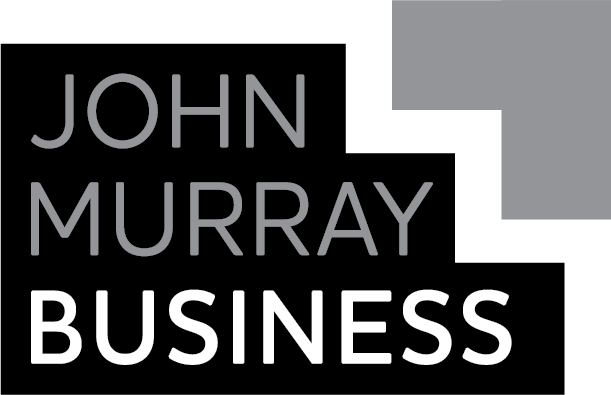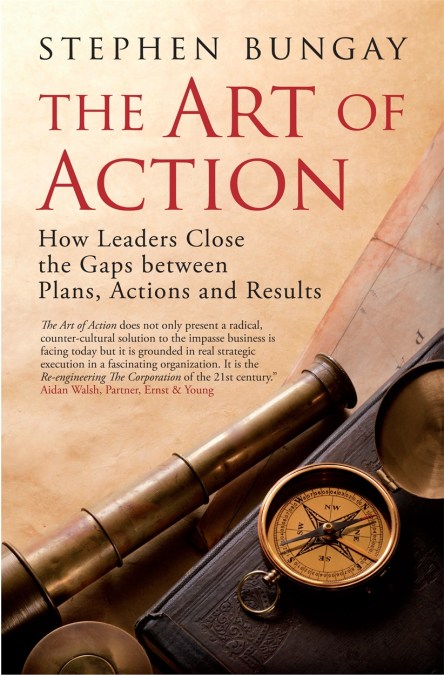What do you want me to do? This question is the enduring management issue, a perennial problem that Stephen Bungay shows has an old solution that is counter-intuitive and yet common sense. The Art of Action is a thought-provoking and fresh look at how managers can turn planning into execution, and execution into results.
Drawing on his experience as a consultant, senior manager and a highly respected military historian, Stephen Bungay takes a close look at the nineteenth-century Prussian Army, which built its agility on the initiative of its highly empowered junior officers, to show business leaders how they can build more effective, productive organizations. Based on a theoretical framework which has been tested in practice over 150 years, Bungay shows how the approach known as ‘mission command’ has been applied in businesses as diverse as pharmaceuticals and F1 racing today.
The Art of Action is scholarly but engaging, rigorous but pragmatic, and shows how common sense can sometimes be surprising.
Drawing on his experience as a consultant, senior manager and a highly respected military historian, Stephen Bungay takes a close look at the nineteenth-century Prussian Army, which built its agility on the initiative of its highly empowered junior officers, to show business leaders how they can build more effective, productive organizations. Based on a theoretical framework which has been tested in practice over 150 years, Bungay shows how the approach known as ‘mission command’ has been applied in businesses as diverse as pharmaceuticals and F1 racing today.
The Art of Action is scholarly but engaging, rigorous but pragmatic, and shows how common sense can sometimes be surprising.
Newsletter Signup
By clicking ‘Sign Up,’ I acknowledge that I have read and agree to Hachette Book Group’s Privacy Policy and Terms of Use
Reviews
Stephen Bungay has something genuinely interesting to tell us. His book is not one of those vacuous essays in 'leadership qualities' of the 'how would Napoleon/MacArthur/Alexander the Great have turned around General Motors' variety ... What makes this book worth reading is the way in which Mr. Bungay calls time on an entire culture of gobbledygook. You don't succeed in warfare by having vague objectives and issuing ambiguous orders. And you shouldn't expect to succeed in business that way, either.
What do you get if you cross a military historian with a management consultant? You get this fascinating book by Stephen Bungay - Bungay is a comfortable with management as he is with history and here cleverly draws on his knowledge of the latter to influence his thinking - A must-read for any would-be strategist.
We live in an age of strategic failure across the board - in international relations and economic affairs, on the battlefield as well as in the marketplace. Inventively and incisively, Stephen Bungay draws on Clausewitz's wisdom, military history, business literature, and common sense to develop the notion of 'directed opportunism' for breaking the ominous cycle of frustration.
Leadership is an intangible value. What sets Stephen Bungay apart is that he draws upon his deep knowledge of historical military campaigns to highlight key leadership principles and then sets them in the context of modern business with an understanding of the particular challenges faced by each company he works for. The first part greatly entertains and captivates the audience and the second part really brings home the teachings we wish to impart. The results have been very good.
The Art of Action is a must for anyone in business who takes their leadership responsibilities seriously. Stephen Bungay draws upon his deep understanding of business strategy and military history and describes principles in his book that will have a real impact for those who adopt them. The Art of Action is the strategic handbook for today built on the insights of yesterday. This will be compulsory reading for all of my unit heads.
All too often, strategies fail to be implemented because they do not make tough choices between priorities and therefore leave people confused. The eminently pragmatic techniques described in this book are a great way of sharpening up the thinking, the communication and the sense of accountability needed to get an organisation moving. The ideas sound simple, but they are very powerful.
Stephen Bungay's career as CEO, management consultant and historian enable him to bring a unique clarity to leadership and the art of making strategy happen. His study of the chastened Prussian military machine analysing why it was defeated by Napoleon's peasant army is illuminated with anecdotes from his career in business. It is this blend of evidence from the military to the business environment which makes this book so useful to the modern day practitioner!
This is not just another book about strategy. The Art of Action does not only present a radical, counter-cultural solution to the impasse business is facing today but it is grounded in real strategic execution in a fascinating organisation. It is the 're-engineering the corporation' of the 21st century. I intend to send a copy to all my clients.
Bungay takes a very surgical knife to some of today's sacred cows, contrasting organisational activity as opposed to action and deftly eviscerating the idea of slavish adherence to the Balanced Scorecard concept. If ever you needed a case against the idea that ticked boxes must inevitably lead to positive results, you have it right here. This is almost certainly the best work-related read I have enjoyed since Paul Kearns' The Value Motive. Indeed Stephen Bungay and Kearns share a clear and uncompromising language which emphasises the logic and clarity of their assertions. My lingering regret about this book is that for some who care to read it, it is already too late: they are in positions of command that they do not merit, and will tiptoe away in the hopes that they are not recognised. This book, nevertheless, should be required reading for anyone who aspires to own or manage any organisation, or part of one. If individuals are imbued with the right stuff this read will fall on very fertile ground indeed.

